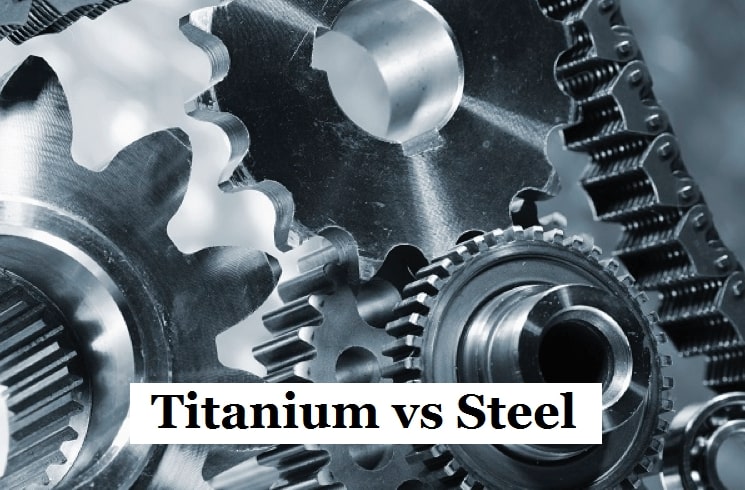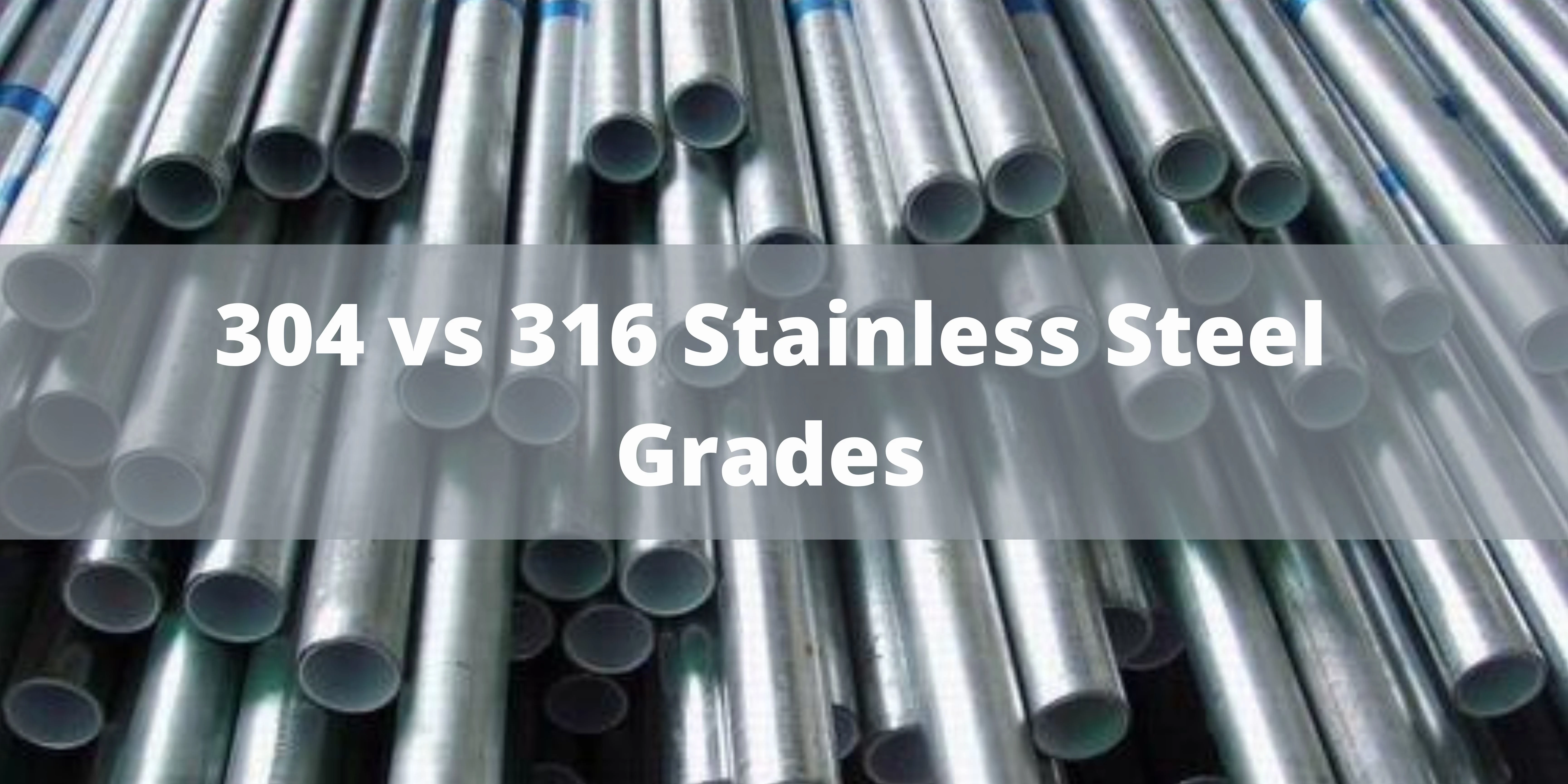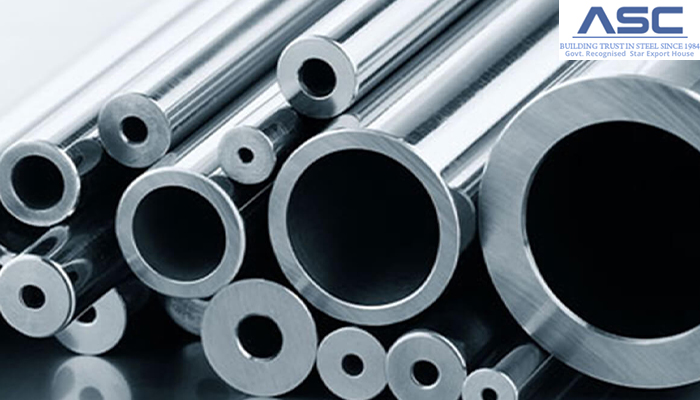Titanium vs Stainless Steel - Know the Difference
by ASC
Posted on May 10, 2022 at 10:05 AM

What is Stainless steel?
Stainless steel is an alloy steel, which means it is steel that has been mixed with one or more other
elements to change its properties. Alloying is the process of putting together more than one metal.
In the case of stainless steel, it is usually made with about ten to thirty percent chromium and
seventy percent iron. This gives it the ability to resist corrosion and handle changes in
temperature well.
When other elements are added, it is usually to make the steel more resistant to corrosion or
oxidation. In some cases, a certain element is added to a certain type of stainless steel to make it
have a certain trait. One or more of the following elements are sometimes added to alloy steel. This
is not always the case, though: titanium, copper, aluminum, sulfur, nickel, selenium, niobium,
nitrogen, phosphorus, or molybdenum. Alloying elements are the different metals that are added to
steel to make it stainless steel.
What is Titanium?
Titanium is a metal, and its color ranges from silver to gray. It is a chemical element with the symbol Ti and the atomic number 12. Titanium alloy is good at moving heat and is very resistant to corrosion. It also has a high ratio of strength to weight, making it a very strong material. Because of this, it is very useful in industries like construction, where changes in temperature and other weather conditions can damage building parts. Titanium alloy is very strong because it has a high level of mechanical resistance. Some industries want it because it is light and has a low density. It is resistant to corrosion from a wide range of acids, alkalis, natural waters, and industrial chemicals, which makes it very resistant to corrosion.
The Difference Between Titanium And Stainless Steel
Titanium and stainless
steel are two traditional metals that are still widely used in manufacturing
today. These two metals are both classically attractive and have distinct properties and
strengths.
Let's look at how titanium and stainless steel are
different.
Titanium and stainless steel have distinctive characteristics that set them apart. These
characteristics include elemental composition, corrosion resistance, electrical conductivity,
thermal conductivity, melting point, hardness, density, and many other characteristics that
distinguish them.
Nature- The major difference between stainless steel and titanium is that titanium
is a
metal,
whereas stainless steel is an alloy.
Element composition- Nitrogen, hydrogen, oxygen, carbon, iron, and nickel are just a few of
the
components that make up pure titanium. Other elements range in proportion between 0.013 to 0.5 with
titanium as the most abundant element. Stainless steel, on the other hand, is made up of a variety
of elements, including 11 percent chromium and additional elements ranging from 0.03 percent to over
1.00 percent.
Corrosion resistance- When it comes to corrosion-related issues, there are a few things to
keep in
mind. Titanium provides superior corrosion resistance and mechanical stability, whereas stainless
steel has good mechanical qualities but poor corrosion resistance.
Electrical conductivity- Titanium is a poor conductor when compared to copper as a reference
for
assessing electrical conductivity. It has a copper conductivity of 3.1 percent, whereas stainless
steel has a copper conductivity of 3.5 percent.
Thermal conductivity- Another characteristic to consider when comparing titanium and
stainless steel
is thermal conductivity. The thermal conductivity of titanium and stainless steel is a measurement
of how well they conduct heat. The thermal conductivity of titanium is evaluated at 118
BTU-in/hr-ft2-°F. Stainless steel, on the other hand, has a thermal conductivity of 69.4 to 238
BTU-in/hr-ft2-°F.
Melting point- Titanium has a melting point of 1650–1670 °C (3000–3040 °F), while stainless
steel
has a melting point of 1230–1530 °C (2250–2790°F). This demonstrates that titanium is chosen over
stainless steel in melting point requirements.
Hardness: Stainless steel's Brinell hardness varies widely depending on alloy composition
and heat
treatment, although it is usually tougher than titanium in most circumstances. When incised or
scraped, however, titanium rapidly deforms.
The densities of titanium and stainless steel are one of the most noticeable differences between
them. Titanium has a high strength-to-weight ratio, allowing it to give about the same level of
strength as stainless steel while weighing just 40% as much. Titanium is half the density of steel
and is much lighter than stainless steel when tested.
Is Titanium Better Than Stainless Steel?
Titanium and stainless steel are employed in different consumer and industrial products. Both metals are elegant and have their own strengths and features. The most comprehensive understanding of metals will assist you in determining which is the best option for you.In terms of Cookware, Titanium vs Stainless Steel.
Cookware is available in a range of materials to suit everyone's needs. Each material has certain advantages that might assist you in determining which is ideal for your priorities. Take a look at the two materials used in cookware to see whether one of them is better than the other.Stainless steel is used for knives, various types of cutters, and other blades. These blades are more sophisticated than titanium blades and are used for a longer period of time than titanium blades. Stainless steel weighs more than aluminium or titanium, but in terms of performance, stainless steel is somewhat between titanium and aluminium when it comes to cooking. It does not transfer heat and is extremely long-lasting. Many individuals prefer stainless steel because of its low cost and simple elegance.
Titanium's lightweight performance is its greatest advantage. Titanium is 45 percent lighter than steel and slightly heavier than aluminum.It is the lightest material available for cookware. It has excellent corrosion resistance and a long life span. Titanium pots are ideal for boiling water because they have thin walls that transfer heat quickly. These pots are great for preparing a regular meal. Titanium is the best option for individuals who want to keep track of their calories and want a fast boil meal.
In terms of Machines, Titanium vs Stainless Steel
Precision machined parts made of titanium might be challenging to work with. Titanium has a 30x higher cost of machining than steel.Despite the fact that titanium is costly as a raw material and to machine, it offers several advantages. When compared to stainless steel, titanium has a similar strength but is much lighter. Titanium is nearly half as dense as stainless steel with the same strength. When weight reduction is a requirement, titanium components are frequently employed in the aircraft sector. Since titanium is biocompatible, it's also used for medical components.In every industry, stainless steel is one of the most widely used metals. Stainless steel is extremely strong and resistant to corrosion. Titanium is a preferable choice where weight reduction is necessary, as well as in applications with more intense temperature changes. When saving money is a top priority, stainless steel is the way to go. The various stainless steel alloys also make this metal useful for a variety of applications, such as welded parts.
Titanium Or Stainless Steel?
Steel and titanium are both strong metals that are used in a wide range of applications. The question is, in a fight between steel and titanium, which will be better: steel or titanium? Even the most experienced experts sometimes struggle to make the best decision.The best answer is determined by the application and design constraints. Because of the functional needs or the expected price, steel is sometimes the superior option. Titanium's better physical qualities, on the other hand, can be useful in a variety of applications.
- Titanium becomes significantly stronger than many steels when alloyed with some other metals like aluminium or vanadium. It is the most powerful metal, having an ultimate strength of almost 430 Megapascals. Titanium is a hard metal with a high melting point, making it an excellent choice for industrial applications.
- Titanium's low density and high strength-to-weight ratio are its distinguishing properties. As a result, this metal is a common choice in the aircraft sector and other applications where weight reductions are required without compromising strength. Steel alloys, on the other hand, are typically durable and have high strength, although they are heavier.
- Titanium is highly biocompatible, which means it is harmless to humans. It can be used to create replacement parts for the human body, including knee replacements, hip implants, pacemaker casings, and craniofacial plates. As a result, it is often employed in the medical field.
- Formability and weldability are both characteristics of stainless steel, allowing it to be easily formed. Because of its shiny look, stainless steel is widely used in a variety of sectors. It can be used to produce home things like pots and pans, as well as healthcare equipment like movable carts, sinks, shelves, and tables.
- Titanium is more costly than stainless steel, making it extremely expensive in some industries that demand large quantities, such as construction. When a budget is limited, stainless steel is preferred over titanium.
- Titanium is extremely resistant to fatigue induced by temperature fluctuations. When temperature changes result in severe highs or lows, titanium is a superior choice.
Is Titanium Stronger Than Steel?
Several claims made by marketing consultants and corporations sparked debate about whether titanium is stronger than steel. Notwithstanding, contrary to popular belief, steel is stronger than titanium alloys. We can assume that a steel rod will be 5% stronger than titanium, but titanium will be 40% lighter. We can estimate that the similar steel rod will be 5% stronger than titanium, but titanium will be 40% lighter. The titanium can tolerate extreme temperatures without reducing weight. Carbon steel cannot withstand higher temperatures. Steel can withstand temperatures of up to 2,700 degrees Fahrenheit, whereas titanium can withstand temperatures of up to 3,300 degrees Fahrenheit. Titanium is more thermostable than steel, which can withstand temperatures of up to 800 degrees F, making it a good choice for subzero weather materials as it does not crack. The advantage of titanium over steel is that it can be stretched or bowed repeatedly without rupturing, unlike steel. When the tensile yield strengths of titanium and steel are compared, a surprising result emerges: steel is far stronger than titanium. This contradicts the conventional belief that titanium is stronger than most other metals, showing the superiority of steel over titanium. Titanium has the same strength as steel but is half the weight, making it one of the strongest metals per unit mass.Which Metal Is Better: Titanium Or Stainless Steel?
The fact that titanium is an element and stainless steel is an alloy is the major distinction between the two materials. Titanium's characteristics are present naturally in the metal. Stainless steel, on the other hand, is a combination of chromium, iron, nickel, and other elements.Stainless steel costs less than titanium. When temperatures change, titanium becomes stronger. Stainless steel is easier to shape and weld than other metals. Titanium is a nontoxic metal that is frequently employed in medicinal applications but stainless steel is more prone to fatigue. Titanium is a softer metal that is more prone to scratching but stainless steel is the most scratch-resistance. Titanium is lighter than stainless steel, while stainless steel is heavier.
Because of this differences, both the metal’s characteristics may be tweaked to each other and make it both viable options. So, choose the one that best meets your current and long-term goals. So, with both options available, you are not making a mistake in selecting the best one for you.

304 vs 316 Stainless Steel Grades - The Difference
Stainless steel has become the material of choice in the construction of kitchenware, beauty products, lab equipment, and carpentry tools due to its smooth, durable surface.

